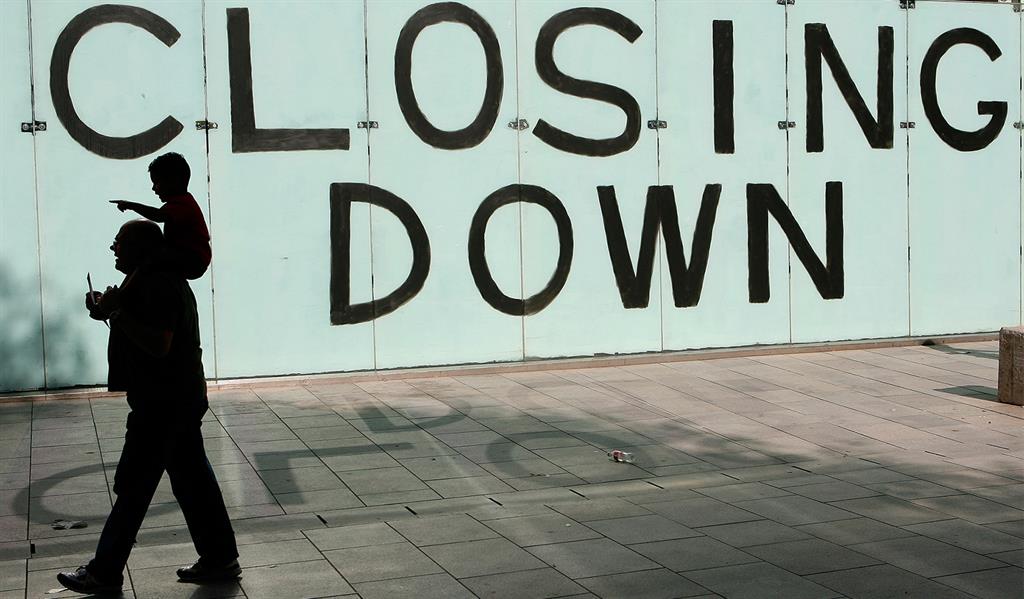Namfisa silent on Covid-19 claims
Neither the Namibian financial institutions watchdog, nor local short-term insurers want to shed light on the extent of Covid-19-related business claims in the country.
Jo-Maré Duddy – The Namibia Financial Institutions Supervisory Authority (Namfisa) has for more than two months refused to provide any information on insurance claims of businesses devastated by the impact of Covid-19.
Following several complaints by businesses that their business interruption claims weren’t settled by local short-term insurance companies, Market Watch on 7 September sent a list of questions to Namfisa.
Market Watch asked the regulator whether it was aware of complaints that short-term insurers providing business interruption cover were dragging their feet to pay out claims and if Namfisa was actively monitoring the situation, given the urgency of the businesses’ financial predicament.
Our questions also included whether Namfisa was regularly engaging short-term insurance companies on the issue and if it was investigating the matter. The publication also requested data on how many business interruption claims were received by short-term insurance companies in total, how many were settled and what the reasons were why claims were rejected.
Despite several undertakings to respond to Market Watch’s questions, Namfisa gave no answers. The watchdog’s only response was a copy of its statistical report for the first quarter of 2020, which it share with Market Watch on Thursday evening.
SHORT-TERM INSURERS
After the South African court last Tuesday ruled that Santam was liable for a business interruption claim made by hotel group Ma Afrika in the aftermath of the national lockdown, Market Watch contacted local short-term insurance for an update on the situation in Namibia.
Santam Namibia did not respond to any of the publication’s questions.
The managing director of Old Mutual Short-term Insurance in Namibia, Riaan Vermeulen, said the company would not to comment to our questions at this point in time.
Hollard Namibia said it received a number of Covid-19 related business interruption claims.
“Claims from both local and foreign-based businesses were submitted as well as claims from various sectors of the economy with businesses in the hospitality and tourism sector making up the bulk of the claims,” the company’s head of transformation and corporate communications, Sam Kauapirura, told Market Watch.
Kauapirura said “because of the complexity of business interruption claims, especially those from the hospitality and tourism sector, most claims are still being considered pending validation”.
He added: “With regard to claims from other industries, settlement and/or rejection depends on the specific policy wordings applicable and the circumstances of each case.
“At Hollard we don’t follow a blanket approach with regard to these claims. We make a determination based on merits. Where a policyholder failed to proof the occurrence of Covid-19 within the required radius or at the insured premises, and that such an occurrence was the cause for its losses, the claims were rejected.”
Kauapirura emphasised that the settlement of Covid-19 related business interruption claims are a complex matter and investigations generally take longer compared to “regular” claims. “However, where an insured provides us with the information we require a determination is usually made within a week of receiving the information,” he said.
TOUGH QUARTER
Namfisa’s latest stats on the performance of the short-term insurance sector are for the three months before Covid-19 hit Namibia. In the first quarter of 2020, the industry made a profit before taxation of N$42.2 million – a drop of nearly 82% compared to the same three months in 2019.
“The decrease in profit before taxation mainly resulted from underwriting losses and the decline in investment income experienced at the end of the first quarter of 2020,” Namfisa said.
The industry’s investment income for the quarter significantly decreased by 104.4% year-on-year to a loss of N$9.7 million during the review period. This mainly emanated from early withdrawal on investments assets made in the money market due to a volatile economic environment during the review period, according to Namfisa.
The industry’s solvency ratio of the industry decreased by 6.7% on an annual basis. The liquidity ratio during the period under review declined by 0.9% to 1.31 times, which is above the required level of 1.0 times, Namfisa said.
APPEAL IN SA
Reuters reported that Santam in South Africa on Friday said it would appeal against the court ruling that found it liable to pay Ma Afrika’s claim relating to the coronavirus lockdown.
Like insurers in other countries, Santam has been battling with clients who say it was wrong to reject claims made under business interruption policies after they were forced to close.
Santam said after discussing the implications of the judgement with stakeholders, namely its lead reinsurers, it had decided there was a need to obtain legal certainty from a higher court and it should apply for leave to appeal.
"Santam believes that the high court erred in its judgment," it said in a statement.
Ma-Afrika and Insurance Claims Africa, a body representing insured parties, said in a statement that Santam's decision to appeal the judgement would further delay claims from businesses affected by the Covid-19 pandemic.
This will "postpone payment of our claims until March/April 2021 at the earliest", Elna du Toit, chief operating officer of Ma-Afrika Hotels said, adding the delay would cripple the already suffering hospitality industry in South Africa.
In a separate statement, Santam said following the court decision, which found it liable for the full indemnity period of 18 months, it had increased its provision for claims under the relevant policy by R1.7 billion.
Santam said the outcome of the appeal created a high degree of uncertainty around its estimate of the claims, which could end up being significantly higher or lower, meaning it will take time to finalise the financial impact. – Additional reporting by Nampa/Reuters
[email protected]
Following several complaints by businesses that their business interruption claims weren’t settled by local short-term insurance companies, Market Watch on 7 September sent a list of questions to Namfisa.
Market Watch asked the regulator whether it was aware of complaints that short-term insurers providing business interruption cover were dragging their feet to pay out claims and if Namfisa was actively monitoring the situation, given the urgency of the businesses’ financial predicament.
Our questions also included whether Namfisa was regularly engaging short-term insurance companies on the issue and if it was investigating the matter. The publication also requested data on how many business interruption claims were received by short-term insurance companies in total, how many were settled and what the reasons were why claims were rejected.
Despite several undertakings to respond to Market Watch’s questions, Namfisa gave no answers. The watchdog’s only response was a copy of its statistical report for the first quarter of 2020, which it share with Market Watch on Thursday evening.
SHORT-TERM INSURERS
After the South African court last Tuesday ruled that Santam was liable for a business interruption claim made by hotel group Ma Afrika in the aftermath of the national lockdown, Market Watch contacted local short-term insurance for an update on the situation in Namibia.
Santam Namibia did not respond to any of the publication’s questions.
The managing director of Old Mutual Short-term Insurance in Namibia, Riaan Vermeulen, said the company would not to comment to our questions at this point in time.
Hollard Namibia said it received a number of Covid-19 related business interruption claims.
“Claims from both local and foreign-based businesses were submitted as well as claims from various sectors of the economy with businesses in the hospitality and tourism sector making up the bulk of the claims,” the company’s head of transformation and corporate communications, Sam Kauapirura, told Market Watch.
Kauapirura said “because of the complexity of business interruption claims, especially those from the hospitality and tourism sector, most claims are still being considered pending validation”.
He added: “With regard to claims from other industries, settlement and/or rejection depends on the specific policy wordings applicable and the circumstances of each case.
“At Hollard we don’t follow a blanket approach with regard to these claims. We make a determination based on merits. Where a policyholder failed to proof the occurrence of Covid-19 within the required radius or at the insured premises, and that such an occurrence was the cause for its losses, the claims were rejected.”
Kauapirura emphasised that the settlement of Covid-19 related business interruption claims are a complex matter and investigations generally take longer compared to “regular” claims. “However, where an insured provides us with the information we require a determination is usually made within a week of receiving the information,” he said.
TOUGH QUARTER
Namfisa’s latest stats on the performance of the short-term insurance sector are for the three months before Covid-19 hit Namibia. In the first quarter of 2020, the industry made a profit before taxation of N$42.2 million – a drop of nearly 82% compared to the same three months in 2019.
“The decrease in profit before taxation mainly resulted from underwriting losses and the decline in investment income experienced at the end of the first quarter of 2020,” Namfisa said.
The industry’s investment income for the quarter significantly decreased by 104.4% year-on-year to a loss of N$9.7 million during the review period. This mainly emanated from early withdrawal on investments assets made in the money market due to a volatile economic environment during the review period, according to Namfisa.
The industry’s solvency ratio of the industry decreased by 6.7% on an annual basis. The liquidity ratio during the period under review declined by 0.9% to 1.31 times, which is above the required level of 1.0 times, Namfisa said.
APPEAL IN SA
Reuters reported that Santam in South Africa on Friday said it would appeal against the court ruling that found it liable to pay Ma Afrika’s claim relating to the coronavirus lockdown.
Like insurers in other countries, Santam has been battling with clients who say it was wrong to reject claims made under business interruption policies after they were forced to close.
Santam said after discussing the implications of the judgement with stakeholders, namely its lead reinsurers, it had decided there was a need to obtain legal certainty from a higher court and it should apply for leave to appeal.
"Santam believes that the high court erred in its judgment," it said in a statement.
Ma-Afrika and Insurance Claims Africa, a body representing insured parties, said in a statement that Santam's decision to appeal the judgement would further delay claims from businesses affected by the Covid-19 pandemic.
This will "postpone payment of our claims until March/April 2021 at the earliest", Elna du Toit, chief operating officer of Ma-Afrika Hotels said, adding the delay would cripple the already suffering hospitality industry in South Africa.
In a separate statement, Santam said following the court decision, which found it liable for the full indemnity period of 18 months, it had increased its provision for claims under the relevant policy by R1.7 billion.
Santam said the outcome of the appeal created a high degree of uncertainty around its estimate of the claims, which could end up being significantly higher or lower, meaning it will take time to finalise the financial impact. – Additional reporting by Nampa/Reuters
[email protected]





Kommentaar
Republikein
Geen kommentaar is op hierdie artikel gelaat nie